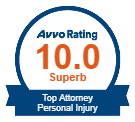.jpeg) According to the Bureau of Labor Statistics, health care workers are more likely to sustain work-related injuries than employees in the manufacturing, building, or transportation industries. Thousands of nurses, nurse practitioners, nurse aides, physical therapists, CNAs, EMTs, orderlies, technicians, and other health care professionals working in Virginia’s medical facilities suffer injuries on the job each year.
According to the Bureau of Labor Statistics, health care workers are more likely to sustain work-related injuries than employees in the manufacturing, building, or transportation industries. Thousands of nurses, nurse practitioners, nurse aides, physical therapists, CNAs, EMTs, orderlies, technicians, and other health care professionals working in Virginia’s medical facilities suffer injuries on the job each year.
Health Risks for Nurses and Other Health Care Workers
In the process of trying to restore sick patients to health, nurses and other employees in hospitals, clinics, and nursing homes face daily threats to their own health, including the following.
- Exposure to infections. Working with sick patients exposes health care workers to airborne and bloodborne pathogens and biohazards. Hepatitis, HIV, and Coronavirus can be contracted through needle pricks, blood spatters, and the breathing of contaminated air.
- Emergency treatment hazards. Emergency room workers don’t always have time or resources to protect themselves against exposure to patients who’ve come into contact with toxic chemicals, biohazards, and radioactivity.
- Toxic cleaning products. Workers who clean and disinfect medical instruments and equipment are exposed to formaldehyde, glutaraldehyde, ethylene oxide, and other toxic chemicals.
- Anesthetic gases. Nitrous oxide, desflurane, and other anesthetic gases can be accidentally ingested by nurses or doctors administering anesthesia.
- Radiation. Taking x-rays and administering other diagnostic tests can expose medical staff to ionizing and non-ionizing radiation.
- Lasers. Lasers used in surgery and other procedures can cause serious burns to the skin of anyone exposed to them.
- Aggressive or violent patients. Employees in mental illness facilities, psychiatric wards, drug or alcohol treatment programs, and prison hospitals or infirmaries risk physical violence from aggressive patients. Thousands of nurses and others working in such environments are assaulted every year.
- Slip and falls. Slipping or tripping and falling in the process of performing job duties can result in broken bones, spinal cord damage, or traumatic brain injury in the worst cases.
Musculoskeletal Disorders Are the Most Common Type of Injury
The injuries most commonly sustained by nurses and other health care workers are musculoskeletal disorders (MSDs) resulting from:
- Transferring patients between beds and wheelchairs
- Turning patients over in bed
- Positioning patients for x-rays and other tests
- Bathing patients and assisting with bathroom activities
- Wrangling heavy medical equipment
- Changing bedclothes
Musculoskeletal disorders are injuries to the muscles, tendons, and nerves of the arms, legs, neck, and back. Some examples are herniated discs, tendonitis, bursitis, strained muscles, sprained joints, and nerve damage leading to chronic pain, limited mobility, and the inability to carry out physically demanding duties.
Workers’ Compensation Benefits in Virginia
If you’re a health care worker injured in the course of performing your job duties in a Virginia facility with three or more employees, you’re generally entitled to file a claim for workers’ compensation benefits, which should cover two-thirds of wages you lose while off work for treatment and recovery, as well as all your medical expenses, including:
- Hospital stays
- Physicians’ appointments
- Referrals to specialists
- Physical therapy
- Diagnostic testing
- Medications
- Surgeries
- Travel reimbursement
- Disability benefits
- Vocational re-training (in some cases)
- Death benefits (if you’ve lost a loved one in a work-related accident)
How long you receive benefits depends on the severity of your injury and the time your doctor feels you need to reach maximum medical improvement (MMI). In the most serious cases, benefits are typically capped at a maximum of 500 weeks. In cases of total permanent disability (TPD), however, lifetime benefits are possible.
Workers’ Comp Is No-Fault Coverage
Because workers’ comp provides no-fault coverage of employees’ work-related injuries, you don’t have to prove your employer did anything wrong to cause your accident. Even if you’re responsible for your own injury, you may still file a claim, and your employer may not fire you or retaliate against you for doing so.
Reporting an Accident and Filing a Claim
If you’re hurt on the job, report your injury to your supervisor right away. Although you have 30 days to do so, don’t wait. Within ten days of your report, your employer should file a First Report of Injury (FROI) with the Virginia Workers’ Compensation Commission (VWCC). You may then file a Claim for Benefits Form from the VWCC website’s Injured Workers page. Although the Commission gives you two years to file, again, you should not wait. Any delay on your part in reporting or filing gives the insurance company ammunition to use against you. The insurer could claim you would have reported and filed sooner if you were really as badly injured as you claim to be.
As soon as possible after your accident, see a doctor for diagnosis and treatment of your injury. Keep your medical appointments, follow up on referrals to specialists, and follow the doctor’s treatment guidelines to the letter. Take medications exactly as prescribed, and keep receipts and documentation of all your treatments. If you receive an Awards Agreement accepting your claim, you may submit your medical bills to the insurance company for payment, and your weekly wage benefits should begin soon.
Responding to Disputes and Denials From the Insurer
Your employer’s insurance company, which actually pays workers’ comp benefits, is in business to make a profit, not to spend money by paying expensive claims. The insurer is most likely to accept your claim if your injury is minor, requiring minimal treatment and little or no time off work. If, however, your injury is more serious, requiring expensive treatment and significant time off for recovery, the insurer will look for ways to dispute or deny your claim in order to save money.
Common reasons cited by insurers for denials include missed reporting or filing deadlines, incomplete or incorrectly completed forms, pre-existing conditions, non-work-related injuries, and insufficient medical documentation. If your claim is denied, the insurer is slow to approve medical treatments, or your employer retaliates against you, you should seek help immediately from an experienced workers’ comp attorney.
How a Lawyer Can Help
A workers’ comp attorney can help you to pursue your claim by:
- Guiding you through the filing process and handling all paperwork
- Making sure you meet all deadlines and observe all procedural requirements
- Consulting with your doctor and showing evidence of your work-related injury
- Addressing retaliation by your employer
- Arranging a lump sum settlement in some cases
- Appealing your denied claim to the VWCC or in civil court
- Helping you to file a third-party lawsuit against any person or company that is not employed by your employer and contributed in any way to your accidental injury
Are You a Healthcare Worker Injured on the Job in Virginia?
An experienced workers’ compensation attorney can help you seek fair benefits and appeal if you’re denied. Contact us online or call us at 540-341-0007 to schedule your free consultation. You pay no attorney fees until we win your case.
|
Related Links: |















